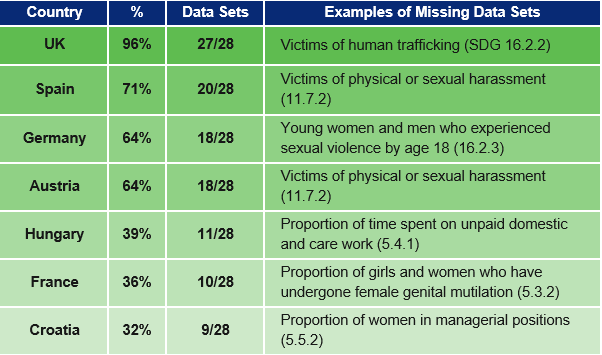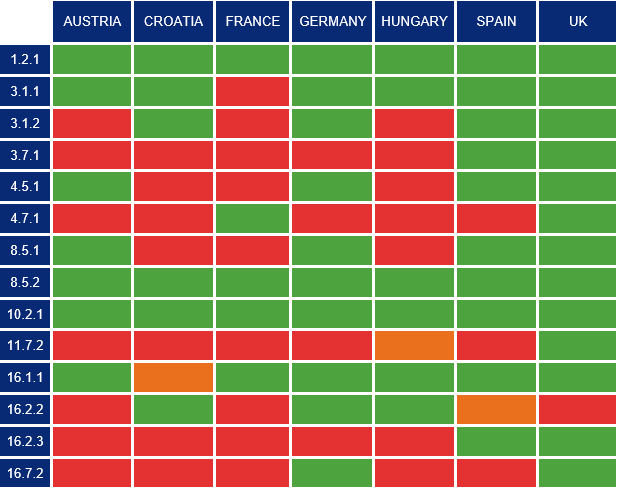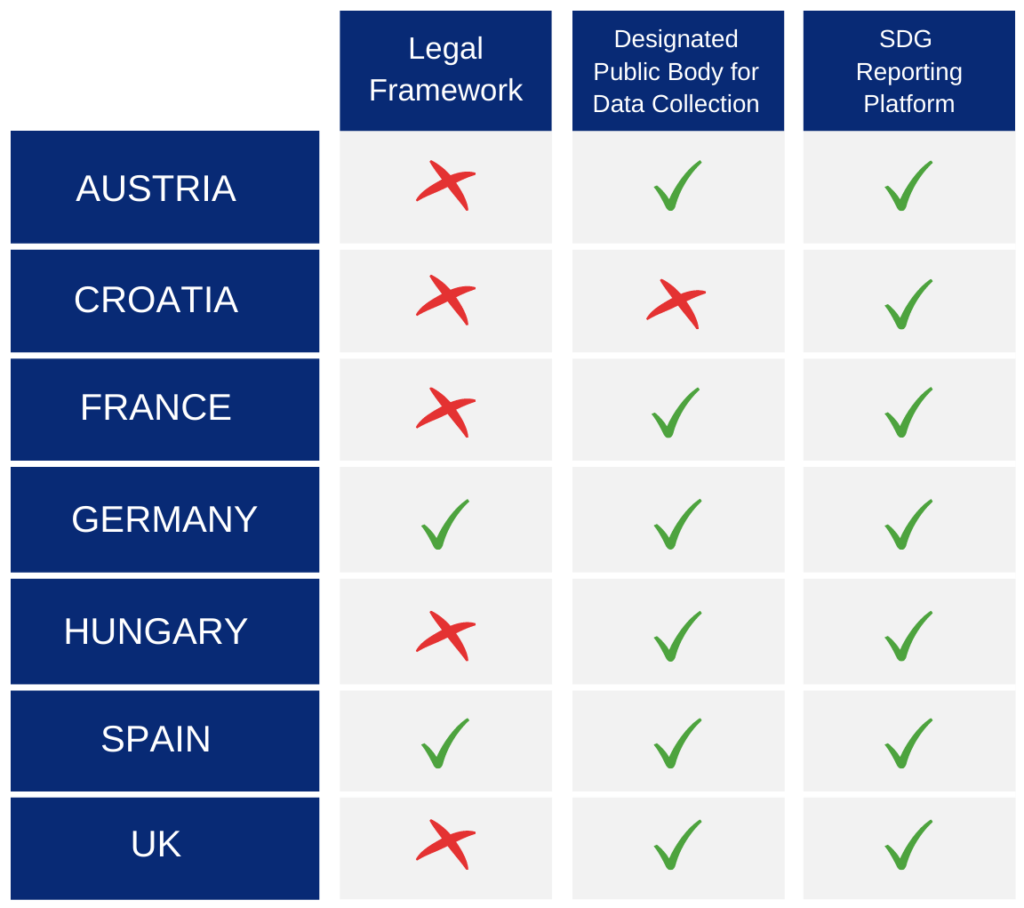This article was originally published on 27 March 2020 and later uptaded on 23 September 2020.
Madrid, 27 March 2020- In several European countries there is poor availability of data on Sustainable Development Goal 5 on gender equality, research by Access Info Europe has found. This makes it impossible for citizens to know how well their country is progressing towards reducing discrimination and violence against women, and securing genuine equality in areas such as education, the workplace, and political participation.
The report “Opening Up SDG 5: What do we know about Gender Equality?” can be downloaded here
Research conducted in seven European countries – Austria, Croatia, France, Germany, Hungary, Spain and the United Kingdom – on 28 SDG gender-related indicators found huge disparities in the quantity and the quality of data available at the national level.
On average little more than half (57%) of the gender-related data was published.
Percentage of data available in each surveyed country

In the UK, a full 96% of the data was available, in Spain 71%, about one third of the data was available in Croatia, France and Hungary. Moderate levels of data publication were found in Austria and Germany (64%). It is not clear whether data is missing because it is not collected, or if governments simply have not yet published all the data that they have. Moreover, not all relevant data was published as SDG data and it was difficult to find.
The 28 analysed indicators include all SDG 5 indicators and 14 extra indicators from SDGs 1, 3, 4, 8, 10, 11, and 16 (see here the full list of indicators).
Available data for SDG 5 indicators by contry


Available data for other gender-related SDG indicators, by country

The lack of common international standards for how countries should report SDG data is also reflected in the wide variety of formats and platforms used in the publication of data by each country. Some countries, such as Germany and the UK, have deployed the user-friendly open source platform Open SDG, which permits data visualisations and makes the data easy to explore. Others such as Spain still have rather old-fashioned statistical websites, while Croatia has no centralised platform for reporting SDG data, making the data hard to find.
This research also looked into the availability in each country of legal frameworks requiring SDG data collection and the official designation of public bodies for such collection.
Availability of legal frameworks, designated public bodies and reporting platforms

Main findings of the research:
- Publication of data on SDG 5 and other gender-related indicators is insufficient; key datasets are not published and seem not to exist in many countries;
- There is weak reporting on non-statistical indicators such as educational measures or the existence of laws;
- Dedicated websites exist but do not yet hold all the data, and some data is still stored in other locations;
- Data is generally available in machine readable formats and can be downloaded, but it is not always available in open formats, and reuse conditions are often not clear and/or are hard to find;
- Data is often not up to date and in some instances it is seriously out of date;
- Data is not sufficiently disaggregated, reducing its value for prioritising action;
- Collection and publication of the data are normally voluntary, with few countries having laws or even policies requiring that data be compiled and published;
- Eurostat, the EU statistics agency, publishes data that is aligned with just 55 of the 231 UN indicators, and for SDG 5 it publishes data on just six indicators, deeming the others not to be relevant.
Key Recommendations
In order to improve the quality and quantity of data available on SDG 5, Access Info makes the following recommendations:
- Publication should be on dedicated websites that are easy for all members of the public to find, and which are user-friendly and easy to understand;
- Data should be available in open-source, machine-readable format in line with the Open Data Charter principles, and there should be no limits on reuse.
- Data should be disaggregated and as up-to-date as possible;
- Every country should have a law or policy requiring collection and publication of all SDG data;
- Eurostat, the EU statistics agency, should compile and publish data related to all of the SDG indicators;
- The UN and the international community should adopt guidelines for countries on how to publish SDG data;
- Every country should publish the full set of data for all 231 SDGs, fully aligned with the UN indicators; where data is not held, it should be collected;
- UNESCO should measure SDG data publication as part of measuring the right of access to information indicator for SDG 16.10.2.
For more information, please contact:
Paula Domínguez, Communications Officer | Access Info Europe
paula@access-info.org | +34 637 226 609
Marta Morcuende, Researcher and Campaigner | Access Info Europe
marta@access-info.org | +34 637 226 609

